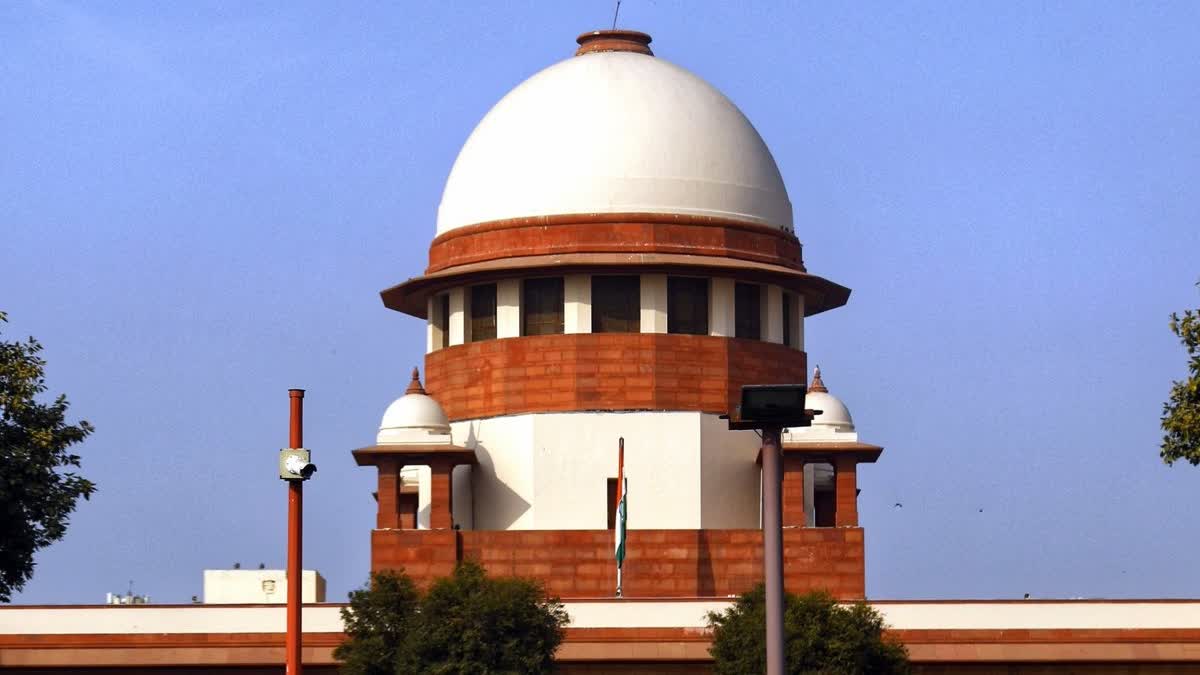New Delhi: For nearly 25-years ex-sepoy Madan Prasad fought a protracted legal battle against his dismissal from service. He committed an offence of overstaying leave without sufficient cause. Prasad maintained that Summary Court Martial (SCM) could not have awarded punishment of dismissal from service and the maximum punishment was of imprisonment for a period of one year which could have been awarded.
However, the Supreme Court Friday sealed the fate legal tussle accepting Army’s contention that he “was a habitual offender”, and stressing that “discipline is the implicit hallmark of the Armed Forces and a non-negotiable condition of service”.
A bench comprising justices Hima Kohli and Rajesh Bindal noted the summary of the punishments for overstay of leave imposed on Prasad under Sections 39 (b) and 63 of the Army Act: a total of six infractions. The top court said it is apparent that Prasad was a habitual offender and “such gross indiscipline on the part of the appellant who was a member of the Armed Forces could not be countenanced.”
Justice Kohli, writing the judgment for the bench, said he remained out of line far too often for seeking condonation of his absence of leave, this time, for a prolonged period of 108 days which if accepted, would have sent a wrong signal to others in service. “One must be mindful of the fact that discipline is the implicit hallmark of the Armed Forces and a non-negotiable condition of service,” said justice Kohli.
Also read-Cases of fratricides in Indian army and reasons that act as triggers
The petitioner’s counsel argued that the respondents have violated the provisions of Section 39(b) and Section 120 of the Act; that the SCM could not have awarded punishment of dismissal from service and the maximum punishment was of imprisonment for a period of one year which could have been awarded.
The Centre’s counsel contended that Prasad did not report for duty on expiry of the extended leave; nor did he provide any documents to support his claim that his wife was so unwell and he was getting her treated. The counsel said he was a habitual defaulter and having pleaded guilty of the charge during the course of the SCM, he cannot be permitted to renege subsequently and question the entire process.
On Feb. 15, 1999, a Court of Inquiry was conducted under Section 106 of the Army Act to investigate the circumstances under which the appellant had overstayed leave. The court opined that the appellant be declared a deserter with effect from Jan. 16, 1999.
Justice Kohli said: “we do not find any infirmity in the impugned judgment passed by the AFT (Armed Forces Tribunal). The appellant had been taking too many liberties during his service and despite several punishments awarded to him earlier, ranging from imposition of fine to rigorous imprisonment, he did not mend his ways”.
Watch-Meet the tea seller who served the army during the Kargil war
The top court said this was his sixth infraction for the very same offence – over staying the leave granted -- therefore, he did not deserve any leniency by infliction of a punishment lesser than that which has been awarded to him.
Prasad moved the apex court against the Feb. 16, 2015, judgment of the AFT, regional bench, Lucknow whereby the appeal originally filed by the appellant as a writ petition before the High Court of Judicature at Allahabad and subsequently transferred to the AFT, was dismissed. The charges levelled against him under Section 39(b) of the Act, of overstaying the leave granted to him without sufficient cause, thereby dismissing him from service, were endorsed.
In the year 1998, Prasad was initially granted leave for 39 days from Nov. 8, 1998 to Dec. 16, 1998. His request for extension of leave on compassionate grounds was allowed by the authorities and he was granted advance annual leave for 30 days in the year 1999, from Dec. 17, 1998 to Jan. 15, 1999. However, he failed to rejoin duty and claimed that his wife had fallen ill and he was arranging her medical treatment and looking after her, he overstayed the leave granted to him.



